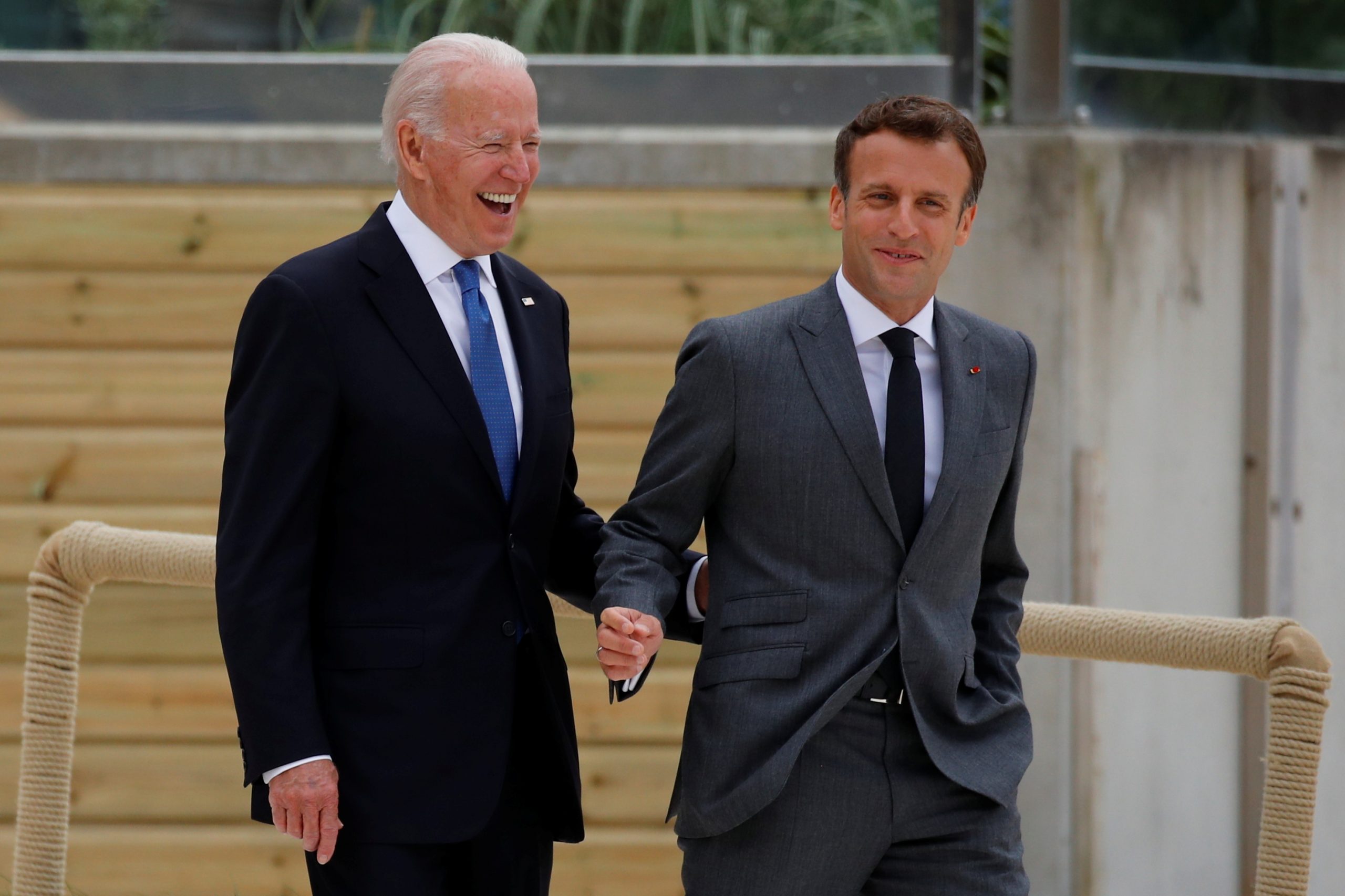
Willie R. Tubbs, FISM News
[elfsight_social_share_buttons id="1"]
U.S. President Joe Biden and French President Emmanuel Macron spoke over the phone Wednesday and appear to have worked out their differences over the AUKUS agreement.
In a joint statement, the White House confirmed that President Biden had requested the call with Macron, who last week recalled France’s ambassadors from both the U.S. and Australia when those nations entered into a trilateral naval agreement with the United Kingdom. Macron will send his ambassador back to the U.S. next week.
Much of the angst between the two world leaders stemmed from the fact that France had sought its own agreement with Australia and wanted, at minimum, to have been included in whatever agreement the other Western powers crafted as a means of mitigating China’s influence in the Indo-Pacific region.
“The two leaders agreed that the situation would have benefited from open consultations among allies on matters of strategic interest to France and our European partners,” the statement reads.
According to the statement, President Biden will meet with Macron in Europe at the end of October.
“President Biden reaffirms the strategic importance of French and European engagement in the Indo-Pacific region,” the statement reads, “including in the framework of the European Union’s recently published strategy for the Indo-Pacific. The United States also recognizes the importance of a stronger and more capable European defense, that contributes positively to transatlantic and global security and is complementary to NATO.”
British Prime Minister Boris Johnson was in Washington, D.C., Tuesday to meet with both President Biden and Vice President Kamala Harris. The president said that they would be addressing how the two nations, “can continue our cooperation in Afghanistan, in the Indo-Pacific, and around the world,” among other things.
While the topic of AUKUS did not come up in remarks made by Johnson and Harris prior to their meeting, Johnson did indicate that the British, “certainly stand shoulder-to-shoulder with you in sticking up for democratic values … in the Euro-Atlantic area and around the world.”
The recent row between the United States and France, the latter of whom criticized the AUKUS agreement as too focused on U.S. desires, was the first major tension between nations since the early 2000s.
In 2003, French President Jacques Chirac and German Chancellor Gerhard Schroeder were vocal in their opposition to U.S. President George W. Bush’s invasion of Iraq, and France threatened to use its United Nations veto power to prevent any resolution of war against Iraq.
This led to rhetorical jousting and French fries being renamed “freedom fries” in three Congressional cafeterias.
